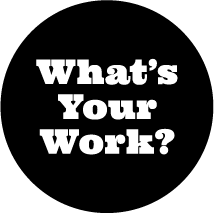Job Interviews
How do we “ace the interview”?
“The important thing is not to stop questioning. Curiosity has its own reason for existing.”
Why do employers hire people?
We work a lot with young professionals who are applying and interviewing for roles. A theme that comes up often in this work is anxiety around the job interview. What do I say? How do I sell myself? What if I don’t get the job?
These are all legitimate questions, often coming out of the pain of being unemployed and looking for work. It’s a common pain, and yet there’s a potentially very easy way to treat it.
All of these questions are about you.
I/me/my statements are all over these questions, and it’s grounded in this mindset of “I need to get the job.” We’ve talked previously about how the brain cannot experience curiosity and anxiety at the same time. So what if we get into the habit of approaching interviews with curiosity?
This brings us back to the opening question: why do employers hire people?
The simple answer is: because there is work to be done.
It’s so easy to get lost in our own anxiety about getting the job, we lose sight of the fact that the employer is hiring to fill a need. The interview then is not a test for you to pass or fail; it’s an opportunity for you to meet the employer, and work out what your contribution could be in the role.
When we think of interviews in this way, it’s immediately a more positive and generative experience. Instead of getting stuck in our own head thinking about “How do I sell myself?” we can ask questions of our own. “What do you see as being my contribution in this role? What is it you need? What does a good job look like in this role?” are great questions to start with - the employer themselves may not have even got clear on this before you ask them.
How they answer gives you the chance to reflect on yourself and how you fit what they’re looking for. You can say “Ok, here’s an example of me filling a similar role” or “Here’s an example of a quality I have that would be useful.” Or even “It seems like you’re looking for something different to what I have to offer.” Even in the latter case, it stops being a failure of an interview and becomes a useful experience for you both; now you both are clearer about what you’re looking for.
You can even get feedback in the interview by staying in this curious frame. At the end, it’s ok to ask: “Given what we’ve talked about, do you see me as a good fit here?” If they say, “Based on x, it might be a risk to hire you” then you can say “What about if I could offer this, would that reduce the risk? If there’s a gap, I want to know now.” The employer wants to hire someone, because they need the work to get done. If you think you can solve their problem, that’s a beautiful contribution you can make. Don’t be afraid to let them know that.
So if you have an interview coming up, see if you can get into this curious mindset. What is the employer looking for? Can you study the job description or any information you have on the company? Can you ask them questions in the interview? And then, when you know what they’re looking for, ask yourself - could that be you? And how can you show them that?
Good luck with your interview - we’ll be rooting for you.
Have you used any of this in an interview? We’d love to know your experience! Click here to write to us with your story, and any questions you have for us.
Interested in the topic of job interviews? We discussed this contribution mindset idea on our podcast - listen to the full discussion here.

